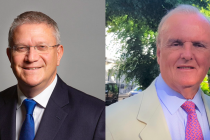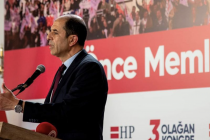Next Sunday, the Turkish Republic of Northern Cyprus will go to the polls to elect a new President. Seven candidates are vying for the political hot seat, including incumbent, Dr. Derviş Eroğlu.
The TRNC operates a Parliamentary political system, which means the Presidency is primarily a symbolic role. However, since the times of the first TRNC President Rauf Denktaş, who remained in power from 1983 to 2005, the TRNC Parliament has bestowed upon its President the right to represent the Turkish Cypriot people at the Cyprus negotiations – traditionally seen as the most critical issue facing the country.
According to the opinion polls, none of the candidates will garner enough votes in the first round on Sunday 19th April to avoid a run-off. However, up to a fifth of the electorate remain undecided.
What the polls are saying
Last month, Girne American University’s (GAU) Research Centre asked 1,532 TRNC citizens about their voting intentions. Dr. Eroğlu, at 77 the oldest and most experienced candidate, is predictably in front on 33%. The Republican Turkish Party’s (CTP) Dr Sibel Siber, the sole female candidate, received 23%.
Standing as an independent, former TDP leader Mustafa Akıncı is polling 16%, while former presidential aide Kudret Özersay was on 7%. The three remaining candidates – Arif Salih Kırdağ Mustafa Ulaş and Mustafa Onurer (the Cyprus Socialist Party candidate) – have less than 2% between them. A fifth of voters had no preference or said they would not vote at all.
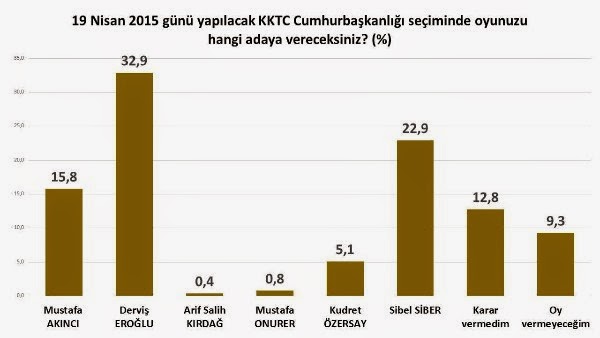
A poll by Gezici presented a somewhat different picture: Eroğlu and Akıncı are neck and neck, with 31% apiece, followed by Siber and Özersay on 25% and 11% respectively. Most of the 3,000 people Gezi polled had a preferred candidate, with far fewer undecided voters.
Both polls suggest a second ballot is likely and this will be a close call. However, the stats suggest a left-wing candidate will edge it.
In terms of the primary issue for voters, just under a quarter say they will back the candidate their party endorses. 23% will decide according to what the candidates have to say on the Cyprus Problem. A fifth of the electorate are more concerned with the candidates’ views on domestic issues, with some 13% will decide according to the candidates’ attitudes towards Turkey.
The candidates on the Cyprus Problem
For many, CTP candidate Dr Siber’s selection over former President Talat was controversial. Many believe she does not have the knowledge and experience to sit at the negotiating table. It could well be that Özdil Nami, the TRNC’s Foreign Affairs Minister and a far more experienced politician on the international stage, would step up to be the driving force in the talks if she is elected.
Her inexperience has shown with a fair few gaffs on the election trail particularly in her analysis of the Cyprus Problem. Yet the TRNC’s top female politician impressed during her short spell as Prime Minister and as the current Speaker in Parliament, and she polled the most number of votes in the 2013 General Election. The prospect of becoming the TRNC’s first female President, one that is committed to ‘clean politics’, is proving popular particularly among female voters.
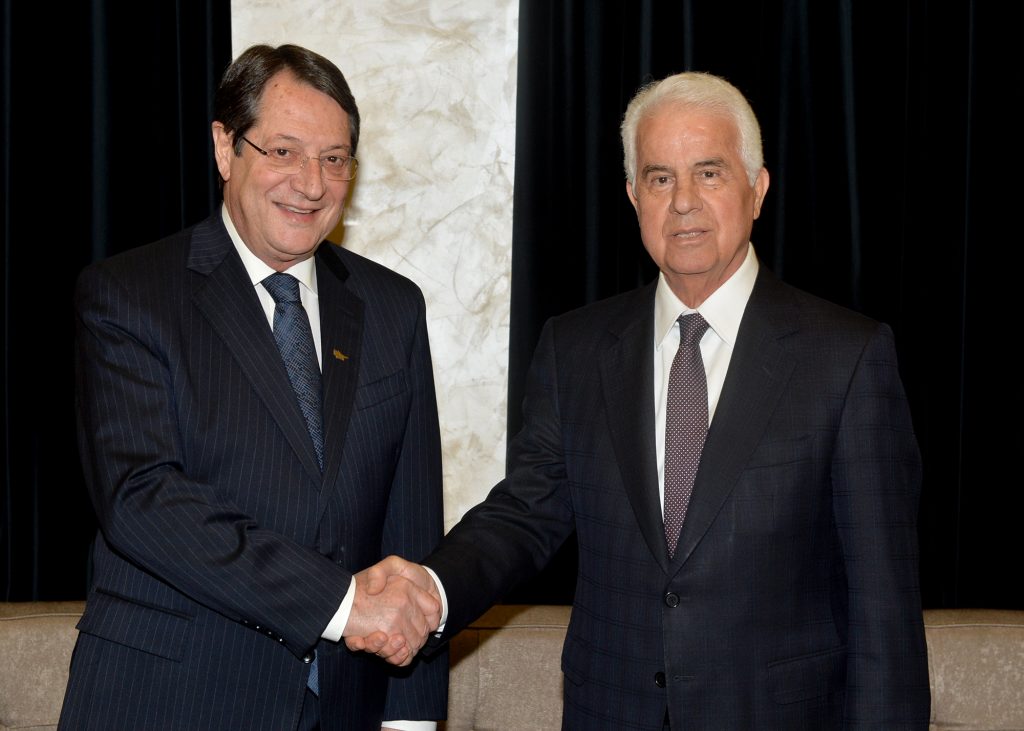
In terms of policy, CTP helped shape the current political tableau during Talat’s reign (2005-2010). As Prime Minister, he led Turkish Cypriots to vote ‘yes’ to the Annan Plan in 2004 and CTP remain firmly committed to a bi-zonal, bi-federal solution, and the UN talks. If Siber takes the Presidency, we can expect more activity on the international stage, but in practical terms there will be little policy shift.
Incumbent Eroğlu has remained the front runner from the start of the race, pledging to follow the path of TRNC founding president Rauf Denktaş. While independent in name – as the TRNC Constitution requires – he remains a heavyweight within the National Unity Party (UBP), which he led for decates. He is also backed by Serdar Denktaş’s Democrat Party, helping him to garner pretty much all of the voting public that is right-of-centre.
Compared to his predecessor, Dr Eroğlu’s term as President has been passive in regards to engaging and influencing world leaders and other key actors in the international arena. Yet many voters regard him as a ‘safe pair of hands’, steadfast in upholding the fundamental rights of the Turkish Cypriot people and someone who will not be bullied into a bad deal for North Cyprus. He is also the most pro-Turkey. His failure to advance the Turkish Cypriot cause during his first term does not matter to his conservatives supporters, who are happy with more of the same.
Can the Turkish Cypriots afford five more idle years of the Cyprus talks? Akıncı argues not. A popular politician, he has a strong following among the Turkish Cypriot Left due to his track record of collaborating with Greek Cypriots, including throughout his three terms as leader of Lefkoşa City Council and as Opposition Leader of TKP (TDP’s predecessor). He is wedged to the idea of a united Cyprus based on the established UN principles and while he is confident he can find a breakthrough where his predecessors failed, there are no new ideas on how.
The era of optimism that ushered in the ‘Yes’ vote and Mehmet Ali Talat as TRNC President during 2004-5 are over. At that time, world leaders assured Turkish Cypriots that their isolation would end. Talat, also with a history of working with Greek Cypriots, felt these relations would enable him to forge a new partnership deal with the South. Neither materialised, ultimately costing Talat his re-election in 2010. It’s highly unlikely that talking utopia in 2015 will be enough for Akıncı to win over the electorate.
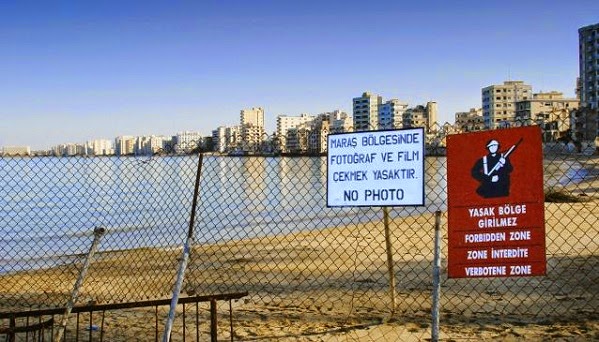
A dark horse in these elections is Kudret Özersay. At 41, he is the youngest and most progressive of the four main candidates. An academic by profession, he also has the most experience of the talks, having served as an advisor to all three Turkish Cypriot Presidents. He has put ‘clean politics’ at the heart of his campaign and as a co-founder of the ‘Toparlanıyoruz’ movement, Özersay has form. His manifesto sets out a raft of internal reforms to root out the country’s corrupt political practices, to be replaced by greater transparency, accountability and the rule of law that will improve democracy in the TRNC.
Özersay calls on the younger voters not to give up on their homeland, but to help drive a new era of change. To get the Cyprus talks moving, he believes in bold measures. He would, for example, open up the ghost city of Maraş (Varosha) under Turkish Cypriot control, enabling its lawful owners to take possession of their properties. This would, he claims, both remove a major stigma that the city is no longer under Turkish military control, while also sending a message to the world that Turkish Cypriots are tired of waiting and will, if necessary, take unilateral steps to improve their lives.
Diaspora unhappy to be locked out of elections
Turnout is normally high in TRNC elections; the last presidential elections in 2010 saw 76% of the electorate cast their vote. Should no candidate poll over 50%, then the top two will be involved in a run-off that takes places a week later on 26 April.
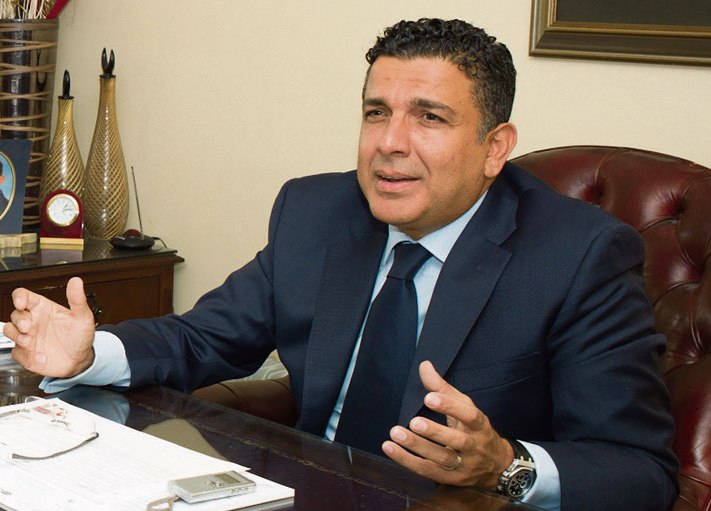
The 2013 Census showed the TRNC population to be 286,257, of which 80% are citizens. A similar number of Turkish Cypriot citizens live abroad. However, no provisions have been made to allow them to vote. This contrasts sharply with Turkey, who runs a major campaign for its overseas citizens to participate in all elections, enabling them to register and cast their votes via their local Turkish consular offices.
While Diaspora community leaders have long pressed for voting rights for Turkish Cypriots living abroad, they have been repeatedly rebuffed by all TRNC political parties.
Nural Ezel, owner of Olay Newspaper – the UK’s biggest Turkish paper – is among many in the Diaspora to voice his dismay at the situation: “I am expected to do my national service, to invest and support in the TRNC, but when it comes to voting for the person who can determine the fate of my country, I am prevented unless I am present in the country on the day [of the elections]. This is totally undemocratic.”



